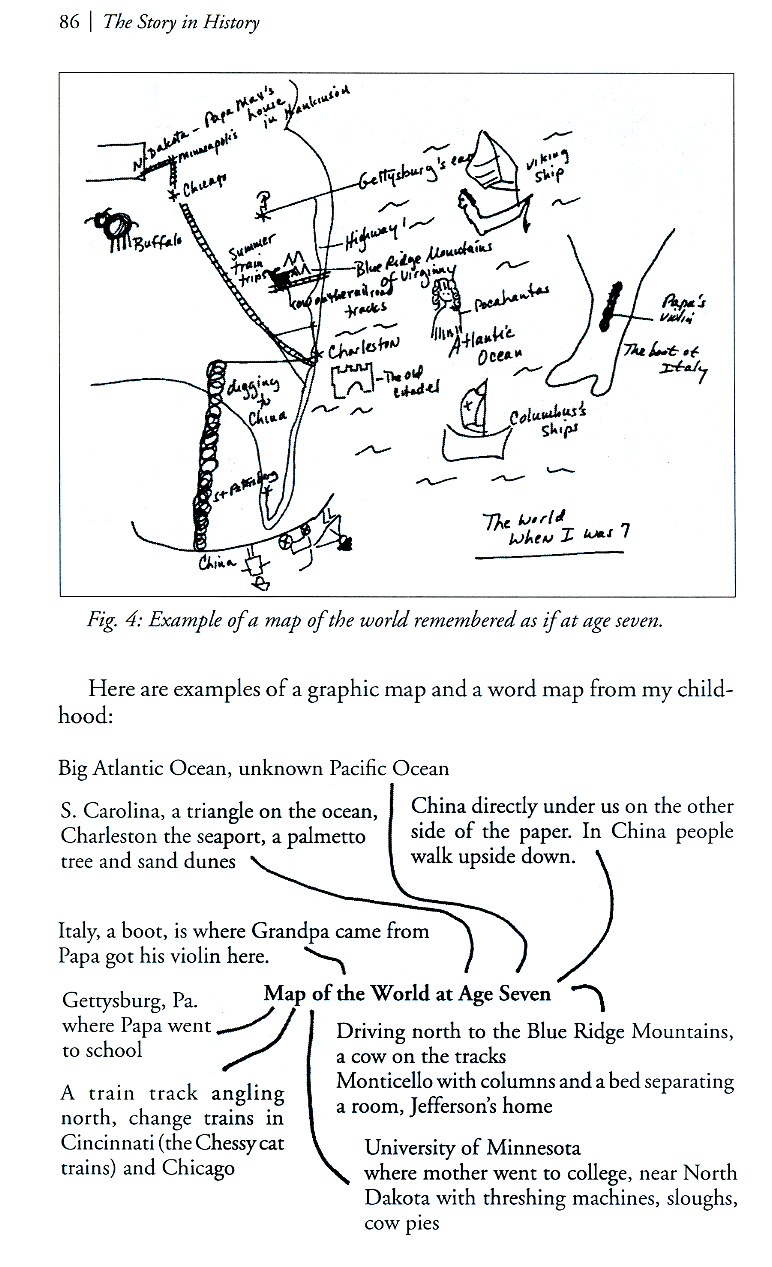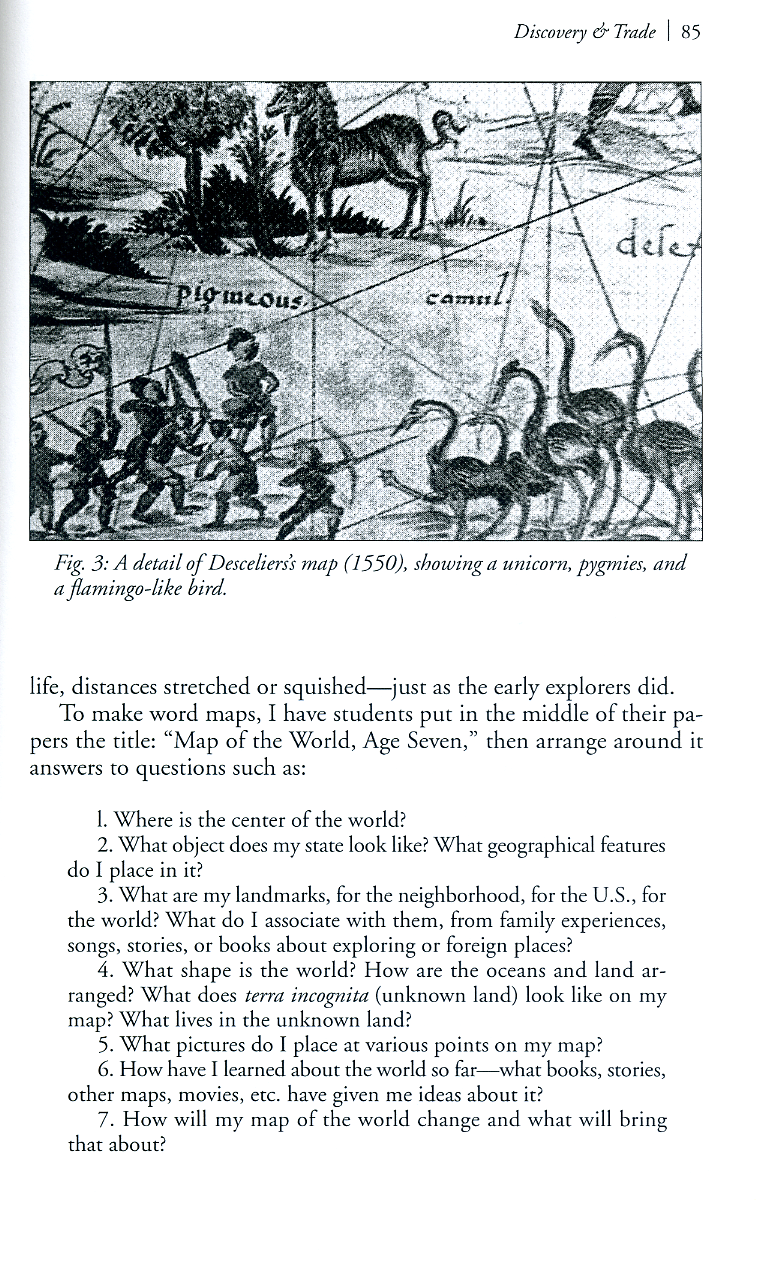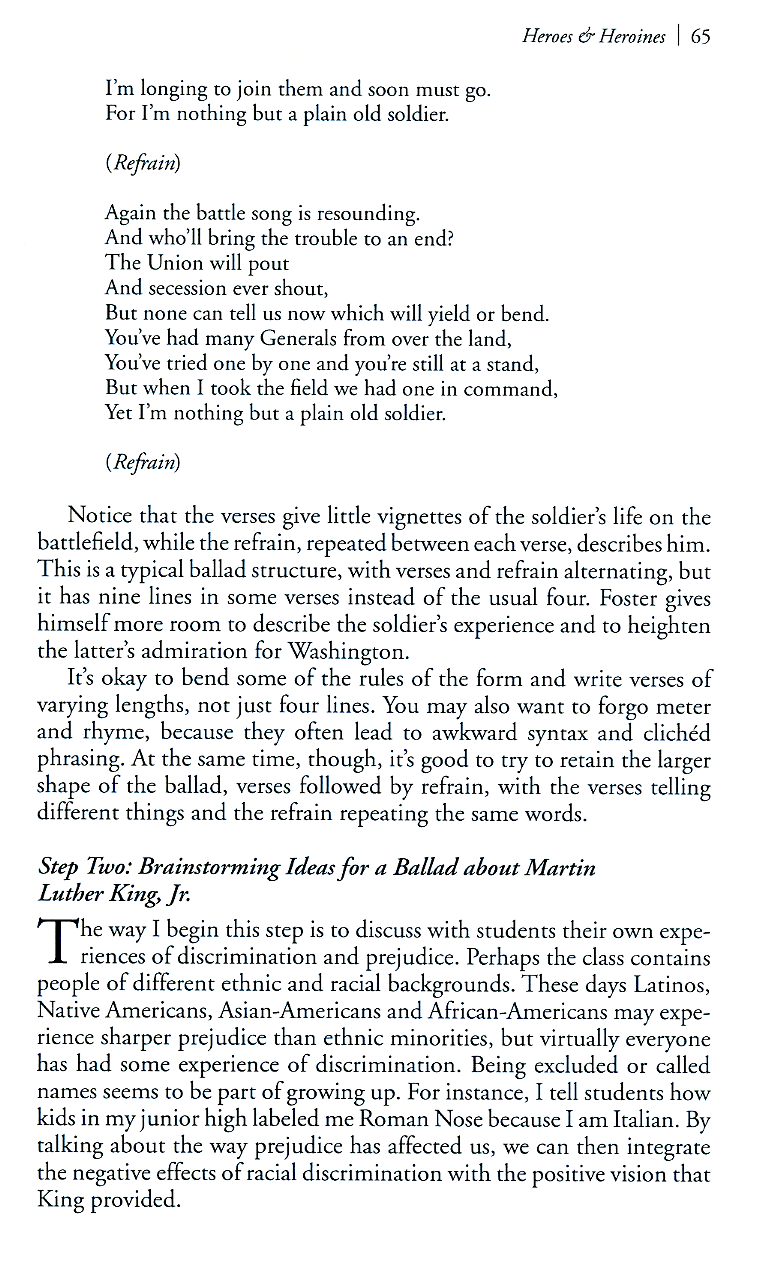More from The Story of History…
I decided to have [George Washington] write a thank-you letter to the mother of a soldier at Valley Forge… Washington’s own mother had pestered him when he was a young soldier… asking him to find her a Pennsylvania Dutch overseer and some butter while he was working as General Braddock’s aide…
Here’s my poem about Washington:
Madame, with the good sense I read in your son’s stalwart bearing, you have sent us socks
Through this winter of despair, my army
dissolves into winter mist. Cold fires left
by barefoot, naked wraiths who run
for home. Your son remains, his sentry post
trod with blood.
My tent is the hive for plots
And forgeries, spread north and south. I wonder
If you’ve encountered them on your
rock-clogged road from Boston. Providence and
drill alone can mold this starving, ragtag
army into force enough against the British.
Memories urge us on: as Braddock’s aide, I was lucky
to survive a swim in frozen river,
bullets sounded charming until two horses
were shot from under me and General Braddock died.
Still I laughed at how the ranks of blazing
Foolish redcoats caught the Indians’ arrows.
We colonists hid behind the trees. Now
you embarrass no son with calls to camp
for butter as once my honored mother did.
Fight for just right and privilege you urge,
for common good from piney South
to rocky North. I agree. Madame,
my feet and I declare our gratitude.
We salute you. And I save my hopes
of future retirement to nurture
trees of palm and pepper. Now I
remain here, strongly bent to arms and
union, here to forge any army in the snow.
I tell [students] the Indian way sees the world as a circle: humans occupy a place in the circle, but so does everything else in the natural world—rivers and hail and beavers and canyons and canyons and jackrabbits and meadows and roses and thistles and creeks and ocean and whales…
Also published in Educating the Imagination.
In the anarchic conditions of Reconstruction, there were no restraints on lynch mobs… and not only in the South. On June 15, 1920, in Duluth, Minnesota, a state with a black population of .04%, three black men were lynched by a white mob that blasted a hole in the police station wall and dragged them out [of jail where police had put them for protection]. The cause: a white girl’s accusation that six black men had raped her.
I bought a group of anonymous snapshots in a flea market in Sioux Falls, South Dakota, and wrote a poem for each photo….sampling the architecture, fashion, technology, and sometimes customs of a particular time and region.
Scissors, Snake, Braid, Metal
pages of rippling sound.
Four horses pulled the scissors.
Four men wore hats whose straw brims
skittered chaff like mice in the gutter.
Scissors sliced through snake.
Winding through heat and chaff the crew
smoked across the field. Behind
fell a snake like tarnished metal.
At noon out of the cloud the men
limped to the boy. Under four caps,
blackened faces begged, “Boy, brush our eyes.”
In his hand lay pieces of snake,
words that fell silent from the page of field
except one watery eye that cried to him.
He could not meet the threshers’ eyes.



